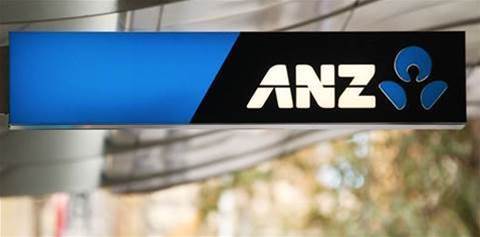ANZ Banking Group is reducing the number of technology vendors it works with and has challenged the remaining ones to work more “effectively” to curtail “unnecessary” costs.

CEO Nuno Matos said that as part of a 2030 strategy, the bank would be “embedding a far more disciplined approach to our external spend, including strengthening procurement practices, and significantly reducing the number of vendors” it works with.
“In technology, we are challenging our vendor partners to work much more effectively with us, to avoid and remove unnecessary expenditure on technology,” Matos said.
“The productivity of every dollar we’ll invest in technology is being increased significantly. Our observation is we can be much more successful in squeezing outcomes [out] of each dollar we spend on technology”.
Matos said that the bank would maintain its technology budget level.
“It’s basically the same as the previous year but much more focused on doing the right things and the things that matter,” he said.
He said that a “legend that ANZ spends less than the other” big four banks “is absolutely not true in terms of technology”.
Matos was also asked about the extent to which the bank might use consultants in the future - and he was blunt in saying they would only be engaged in exceptional circumstances.
“I don’t like consultants, to be honest. I hate consultants,” he said, to laughter from the room.
He said that part of improving productivity at the bank - which is one of the core goals of its 2030 strategy - would see the bank “depend less on third parties” and “doing [work] ourselves”.
“I come from a school [of thought] where things are done by the teams that are in the company,” Matos said.
“Sometimes in special moments you need some help, either because they have something you don’t have, or because you need to do it faster, as an accelerator.
“But I - and we - don’t like structured consulting or third-parties or managed services.
“Cost management demands you do your own things and you never use others unless there’s a very special reason for it, which sometimes there is," he said, before adding: “The company will be very hands-on [from now on]”.


_(36).jpg&h=140&w=231&c=1&s=0)
_(28).jpg&h=140&w=231&c=1&s=0)

_(33).jpg&h=140&w=231&c=1&s=0)





 iTnews Executive Retreat - Security Leaders Edition
iTnews Executive Retreat - Security Leaders Edition
 Huntress + Eftsure Virtual Event -Fighting A New Frontier of Cyber-Fraud: How Leaders Can Work Together
Huntress + Eftsure Virtual Event -Fighting A New Frontier of Cyber-Fraud: How Leaders Can Work Together
 iTnews Cloud Covered Breakfast Summit
iTnews Cloud Covered Breakfast Summit
 Melbourne Cloud & Datacenter Convention 2026
Melbourne Cloud & Datacenter Convention 2026
 The 2026 iAwards
The 2026 iAwards












_(1).jpg&h=140&w=231&c=1&s=0)



